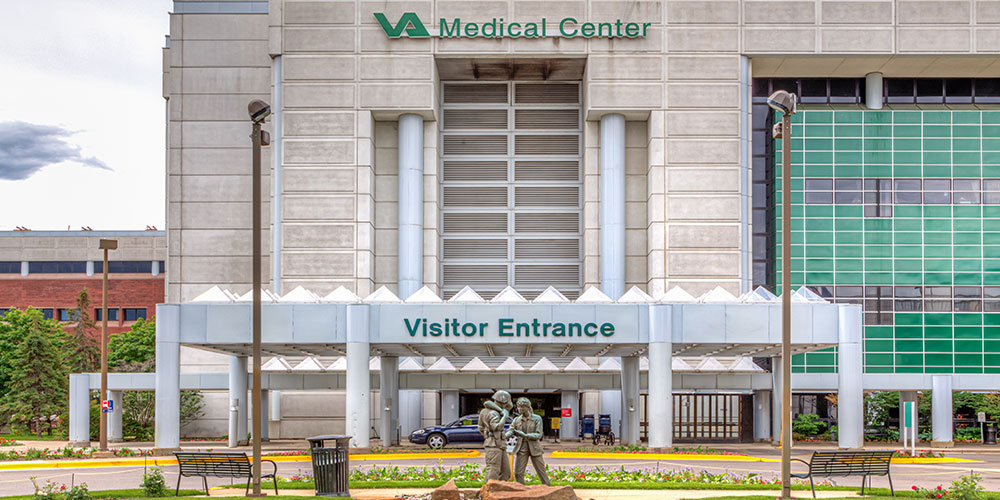A federal probe of a West Virginia Veterans Affairs hospital continues as investigators discover more suspicious deaths.
The VA’s Office of Inspector General has been investigating the Louis A. Johnson VA Medical Center in Clarksburg after two deaths were reclassified as homicides after the bodies were exhumed, USA Today reports.
The elderly patients received insulin injections they did not need, causing their blood sugar to plummet.
In March 2018, 81-year-old George Shaw, a retired Air Force communications specialist, was admitted to the hospital after showing signs of dehydration, according to a Washington Post investigation. Shaw’s blood pressure dropped and a nurse told the family there was no explanation.
Shaw was transferred to hospice care and died nine days later. The attending doctor urged the family to get an autopsy. The FBI exhumed Shaw’s body and a medical examiner found four insulin injection sites on his arms and right thigh. The autopsy found his blood sugar dropped to 17 in a span of a few hours, according to the family’s attorney.
In August 2018, two FBI agents went to the home of Melanie Proctor, whose father, Felix McDermott, died at the hospital in April 2018. An FBI agent told Proctor they did not believe her father died of natural causes as she was originally told. An investigation determined McDermott, an Army veteran who was not diabetic, had also received a dose of insulin. He died the next day from severe hypoglycemia.
“When you have someone who is 80-something years old and they had health issues, you’re thinking, ‘This was their time,’ ” said Proctor. “You don’t question it. None of us had a clue something was wrong.”
Person of Interest Former Nursing Assistant
At least nine other patients in the same hospital ward died of low blood sugar prior to McDermott’s death, Campus Safety previously reported. In total, seven bodies have been exhumed in connection with the suspicious deaths.
The seventh autopsy was completed last month. Although Shaw’s, McDermott’s and one other death have been ruled homicides, the evidence of insulin was not strong enough in the other patients to make the determination, a person close to the investigation told The Washington Post.
However, similarities have been found in 11 cases: elderly male patients in private rooms were injected in their abdomen and limbs with insulin the hospital had not ordered. The insulin was given late at night when much of the hospital staff was gone. Within hours, the patients’ blood sugar levels plummeted.
Federal authorities say they have identified a person of interest — a now-fired hospital employee who worked the overnight shift as a nursing assistant and left last year. The nursing assistant was assigned to monitor several of the veterans who died.
An investigation was opened by VA Inspector General Michael Missal in July 2018. The nursing assistant was moved to a desk job but the hospital did not move to fire her for another seven months. She was eventually fired due to lying on her resume. She claimed to be certified as a nursing assistant but was not, according to a person close to the case.
A possible motive is still unclear but investigators do not believe they were mercy killings. Although the victims were hospitalized with underlying medical conditions, none were terminally ill.
“I was hoping against hope it was a mercy thing,” Proctor said. “You can at least wrap your mind around that.”
Medical Staff ‘Slow to Identify a Pattern’
In October 2018, a report issued by Missal’s office after a week-long, unannounced inspection, found general compliance with patient safety measures with the exception of a weak system for identifying and reporting red flags that could lead to patient harm.
According to people close to the case, by mid-2018, several doctors felt uneasy with the number of patient deaths due to sudden hypoglycemia but did not report their concerns. Data shows Clarksburg’s mortality statistics were twice as high as similar hospitals in the VA system for the first two quarters of 2018.
Then, in June 2018, 87-year-old Korean War veteran John Hallman was admitted with liver issues and potential pneumonia. He died the next morning.
A team of doctors reportedly discussed the case and noticed the overnight staff had checked Hallman’s blood sugar level, which had dropped to 26.
“We said, ‘Who checks the blood sugar on a non-diabetic in the middle of the night while they’re trying to sleep?’” the anonymous medical staffer recalled. “It was like, ‘Oh my gosh, this is not good.’”
The doctors emailed a high-ranking supervisor with their concerns and the supervisor forwarded the email to the local quality team for review instead of directly notifying the inspector general’s office, as required by law.
Ten dates later — at least nine months after the first death — medical center director Glenn Snider escalated the case to the inspector general and other VA leaders.
Senator Joe Manchin said he is preparing a full-blown investigation into how the VA handled the case.
“You mean to tell me that for nine months you didn’t know what was going on in your hospital?” Manchin said. “Either you didn’t care, or there was a lack of competency.”







